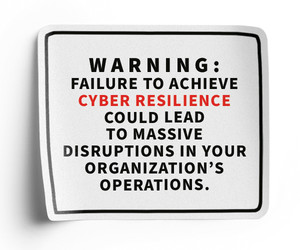EDTECH: How does your background as an educator influence your current role as a CIO at the state level?
WRENN: I have seen what technology can do for teachers, what it can do for students and what it can do for administrators running a school. I’m motivated every day to bring the best of what I know to make school an overall better place and make teaching and learning fun. And technology can certainly provide critical tools for engagement, which can make school more fun.
EDTECH: The people using technology most in our schools are not cyber experts. How do we get the cybersecurity message across to them?
WRENN: People are our No. 1 uncontrollable variable, and that includes teachers and students. For me, getting that message across comes down to training.
It’s a balancing act. Teachers should be focused on how to best educate children. However, we must also train our teachers on how to be the first line of defense for cybersecurity and data privacy.
RELATED: Schools evaluate cybersecurity instruction under a new law.
EDTECH: How important is it that the message also extends to parents and the rest of the community?
WRENN: We say all the time that knowledge is power. It’s no different with cybersecurity. You can’t underestimate the impact of knowledge on our parents. It is also important to involve your community and parents in cybersecurity training. When parents visit campus for open houses, it’s an opportunity to show them how to use their computers safely and how to determine if an email is legitimate or not.
EDTECH: What’s the most important thing for educators to know about cybersecurity?
WRENN: We have a tremendous responsibility to protect our students’ data. We used to say that we’re digital migrants teaching digital natives. That was our age of innocence. We loved collecting free tools. We never thought at all about student data privacy, or even our own privacy.
Today, we are in the age of knowledge. Teachers and parents should know and should let students know that anything they are doing online is collecting data about you and your habits. One of the ways we can protect and empower our students is by teaching them skills for tomorrow, such as how to protect their privacy.
We also can’t have them ready for tomorrow if we’ve exposed their data. We’ve got to have a balance between the tools that are appropriate and perhaps streamlining and minimizing some other tools.












